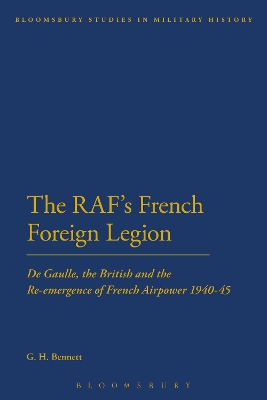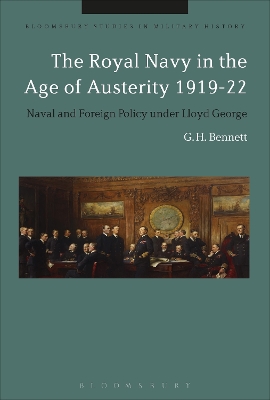Bloomsbury Studies in Military History
2 total works
This book examines and analyses the relationship between the RAF, the Free French Movement and the French fighter pilots in WWII. A highly significant subject, this has been ignored by academics on both sides of the Channel. This ground-breaking study will fill a significant gap in the historiography of the War.
Bennett's painstaking research has unearthed primary source material in both Britain and France including Squadron records, diaries, oral histories and memoirs. In the post-war period the idea of French pilots serving with the RAF seemed anachronistic to both sides. For the French nation the desire to draw a veil over the war years helped to obscure many aspects of the past, and for the British the idea of French pilots did not accord with the myths of "the Few" to whom so much was owed. Those French pilots who served had to make daring escapes. Classed as deserters they risked court martial and execution if caught. They would play a vital role on D-Day and the battle for control of the skies which followed.
Bennett's painstaking research has unearthed primary source material in both Britain and France including Squadron records, diaries, oral histories and memoirs. In the post-war period the idea of French pilots serving with the RAF seemed anachronistic to both sides. For the French nation the desire to draw a veil over the war years helped to obscure many aspects of the past, and for the British the idea of French pilots did not accord with the myths of "the Few" to whom so much was owed. Those French pilots who served had to make daring escapes. Classed as deserters they risked court martial and execution if caught. They would play a vital role on D-Day and the battle for control of the skies which followed.
This book thoroughly explores and analyses naval policy during the period of austerity that followed the First World War. During this post-war period, as the Royal Navy identified Japan its likely opponent in a future naval war, the British Government was forced to "tighten its belt" and cut back on naval expenditure in the interests of "National Economy". G.H. Bennett draws connections between the early 20th century and the present day, showing how the same kind of connections exist between naval and foreign policy, the provision of ships for the Royal Navy, business and regional prosperity and employment.
The Royal Navy in the Age of Austerity 1919-22 engages with a series of important historiographical debates relating to the history of the Royal Navy, the failures of British Defence policy in the inter-war period and the evolution of British foreign policy after 1919, together with more mundane debates about British economic, industrial, social and political history in the aftermath of the First World War. It will be of great interest to scholars and students of British naval history.
The Royal Navy in the Age of Austerity 1919-22 engages with a series of important historiographical debates relating to the history of the Royal Navy, the failures of British Defence policy in the inter-war period and the evolution of British foreign policy after 1919, together with more mundane debates about British economic, industrial, social and political history in the aftermath of the First World War. It will be of great interest to scholars and students of British naval history.

